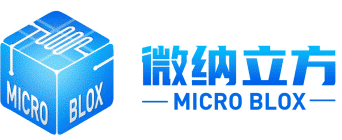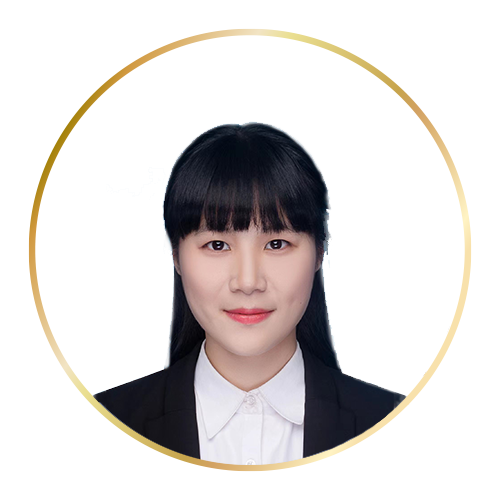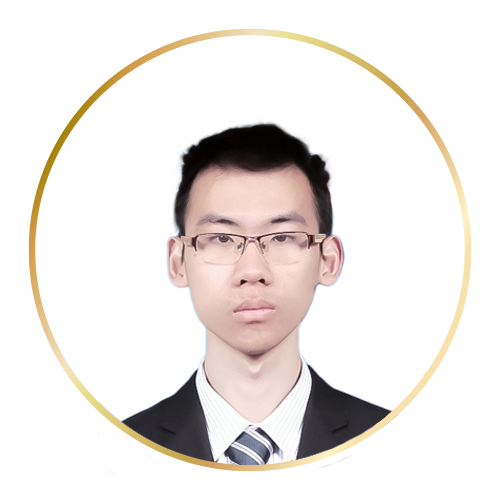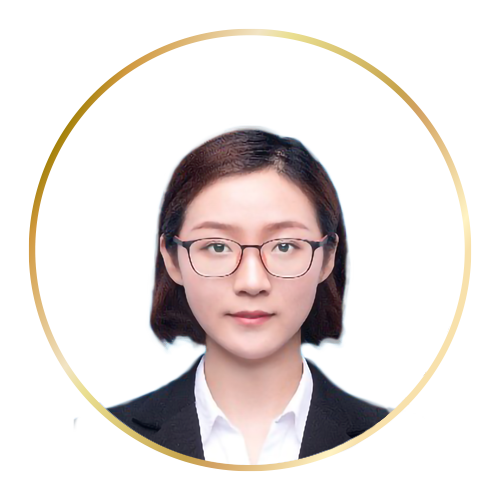
Application Closed
Microfluidics has emerged very quickly as a distinct new area of research thanks to its application in many diverse fields, such as chemistry, biology, medicine, and physical sciences. From the early days where it was limited to specialists in a few laboratories, the number of researchers, in both academic and industry, using Microfluidics has exponentially increased all over the world fueling the world with new innovations. The Microfluidics awards aims at recognizing the dynamism of the Chinese Microfluidics field and its researchers.
As a pioneer in providing instruments for projects where Microfluidic technology is needed, Fluigent is honored to sponsor The Microfluidics awards addressed to researchers in China. During the last 18 years, while supporting Microfluidics users, Fluigent has accumulated a huge expertise and has become the Worldwide leader for innovative fluid control solutions in Microfluidics. More than 6000 equipments are used in more than 50 countries, and hundreds of them are in China, one of the countries where researchers showed great skills in the field of Microfluidics.
“At Fluigent, every day we are witnessing how Microfluidics is positively impacting our world and are amazed by the fantastic applications of Microfluidic. We strongly believe that those awards will highlight the fantastic works done in research laboratories and will foster new ideas and partnerships from which we will all benefit.”
France Hamber, CEO of Fluigent
PRIZES | 奖项
1. Three Prizes for PhD students: 5,000 RMB (each) & Typical French Wine
博士生奖:3名,5,000 RMB(每人),原装法国进口红酒
2. Two prizes for New PhD researchers: 8,000 RMB (each) & Typical French Wine
青年学者奖:2名,8,000 RMB(每人),原装法国进口红酒
3. Participation Prize: Exquisite office gifts
参与奖:精美办公礼品

CONDITIONS TO APPLY | 参赛作品条件
- All the submitted work should be related to Microfluidics.
参赛作品(论文专利等科研成果)须和微流控相关 - Candidates have already published their work in the past, the published work (paper, article, patent..) is enough to apply. Candidates must be one of the authors.
参赛人参赛作品须为已发表,并且参赛人必须是作者之一 - Candidates who want to apply with non published work (ongoing or old), are requested to submit a PDF document summarizing their work with related results. They should indicate all the workmates /professors /supervisors..; who have participated in the same work
未发表作品也可参赛,请提交一份PDF总结自己所做工作与关键成果的材料,同时须列出所有同事 - 2021-2022-2023 winners cannot apply.
2021、2022、2023年 已获奖参赛作品不可重复参加
Candidates should be 参赛人条件 :
- PhD candidates (during 2023-2024)
博士生(2023-2024在读) - New PhD researchers (PhD obtained after January 2020)
青年学者(2020年1月后获得博士学位) - Candidate’s current university/institute/company should be in China / Hong Kong
参赛人目前所在的大学/研究机构/公司应位于中国大陆或香港。
HOW TO APPLY | 申请方式
Complete the application form.
You will need (请准备以下信息及文件):
- Your CV 您的各项基本信息
- Your work to submit 您的参赛作品(论文专利等)
- A photo of you 您的一张个人照片
- Your nomination file(s) to be completed before sending your application (not mandatory)
推荐人文件(nomination file),建议附上但非必须。
*Nominators are not mandatory for the application. However, it’s highly recommended for an application of non-published work. Several nominators for the same work are allowed.
申请时不强制要求推荐人,但对于尚未发表的作品,强烈建议提供推荐信。同一作品可以由多位推荐人推荐。
Candidates shall not contact reviewers for any reason related to this award. Any contact with reviewers will lead to immediate disqualification.
Incomplete forms, false declarations or non-compliance to the application conditions in the targeted category will lead to immediate disqualification.
APPLICATION PERIOD | 报名时间
- October 14 to November 4, 2024, 24:00 (Beijing time)
2024年10月14日至11月4日24点(北京时间) - Winners announcement on December
结果公布:2024年12月
Heads of the reviewing board | 大赛评委

Xing Cheng 程鑫
Professor
Southern University of Science and Technology
南方科技大学
Xing Cheng joined the Department of Materials Science and Engineering at Southern University of Science and Technology as a full professor in 2013. He received BS degree in Geochemistry from University of Science and Technology of China in 1997, MS degree in Geochemistry from Stanford University in 1999, and PhD degree in Electrical Engineering from the University of Michigan at Ann Arbor in 2005.
He joined Texas A&M University as an assistant professor in the Department of Electrical and Computer Engineering in 2006, and became an Associate Professor in 2012. His research interests include several basic and applied areas: 1) high-resolution lithographic techniques, particularly nanoimprint, and 3D micro- and nanofabrication techniques; 2) electronic and photonic devices based on new semiconductors and functional materials; 3) micro- and nanofluidic structures and devices; and 4) Microfluidics.
Prof. L. Q. “Rick” Wang received his Ph.D. from the University of Alberta, Canada, and is currently a chair professor in the Department of Mechanical Engineering and the Biomedical Engineering Programme at the Hong Kong Polytechnic University (HKU). He also serves as the Director and the Chief Scientist for the Laboratory for Nanofluids and Thermal Engineering at the Zhejiang Institute of Research and Innovation (HKU-ZIRI), the Hong Kong Polytechnic University.
Prof. Wang has 26 years of HKU experience in transport phenomena, biomedical engineering, materials, nanotechnology, biotechnology, energy and environment, thermal and power engineering, and mathematics. In addition to 11 scholarly monographs/books, five book chapters, 40+ patents and software copyrights, 80+ keynote lectures at international conferences, and 170+ invited lectures in universities/industries/organizations, Prof. Wang has published 260+ papers in various prestigious journals including Science, Nature Nanotechnology, Nature Communications, Science Advances, Advanced Materials, PNAS, Physical Review Letters, Chemical Reviews, Materials Today, and Physics Reports.
His work received recognition through a number of awards, including the 2021 Gold Medal of International Exhibition of Inventions of Geneva, the 2018 TechConnect Global Innovation Award, the 2018 Silver Medal of International Exhibition of Inventions of Geneva, the 2017 OSA Innovation Award, and the 2016 First Outstanding Achievement Award of Hangzhou Oversea Scholars, among others.

L. Q. “Rick” Wang 王立秋
Chair Professor
Hong Kong Polytechnic University
香港理工大学
Yanbo Xie is now tenured full Professor in Northwestern Polytechnical University since 2015. He received BS degree from Physics department in Northwestern Polytechnical University, MS degree from School of Physics in Peking University, and PhD degree from MESA+ institute for Nanotechnology in University of Twente in 2013.
His research interests include fundamental and application areas: 1. Mass transportation phenomena in nanofluidics, particular for ions and particles in confinement; 2. the electrokinetics at interface considering slipping boundaries; 3. multiphase flow like droplets or bubbles and their applications in interdisciplinary areas.
Sponsors

Fluigent is the global leader in providing fluid handling solutions for a wide range of applications related to Microfluidics where fluid control is critical.
Since its foundation, Fluigent has committed to set up the standards and to make progress in Microfluidics. More than 6 000 Fluigent systems have been installed in academic and industrial groups in 50 countries around the world.
For 15 years, Fluigent has strived to stay at the forefront of science. Its innovative solutions facilitate the work of researchers by allowing them to focus on the science, not on the setup. According to a survey done on a representative sample, Fluigent’s microfluidic solutions saved 25,470 hours globally in 2020 for R&D researchers.

Micro-blox Technologies (Beijing) Co., Ltd (Micro-blox) is committed to provide our customer with over-all solutions of microfluidics or Lab-on-a-chip. Micro-blox make idea or data into products and bring the products to labs in academic organizations and companies for researching or to hospitals and households for daily health care.
Micro-blox firstly introduces blocks concept into microfluidics platform. Micro-blox divide a microfluidics system into blocks as sample handling, process monitoring, microfluidics chip, and analyzing block. In further dividing microfluidics chips micro-blox or nano-blox as different elements to integrate them into different functional chips. Based on this concept, Micro-blox can design a microfluidics system with simplicity, miniature and low-cost.
Use this form to participate (you’ll need your CV, your Article PDF, a photo of you & your Nomination file)
Application Closed
Please contact +86-15810110035 (彭工) if you meet any issues.
申请时如果遇到任何问题,请联系+86-15810110035 (彭工)
Follow us on wechat

Award Wechat page

Winners of previous years | 往届获奖人风采
New Researchers Category

Dr. Yiyuan Zhang 张艺媛
The Hong Kong Polytechnic University
Magnetic-actuated “capillary container” for versatile three-dimensional fluid interfaces manipulation.
Science Advances (2021).

Dr. Da-Wei Pan 潘大伟
School of Chemical Engineering, Sichuan University
Interfaces coupling deformation mechanisms of liquid-liquid-liquid three-phase flow in a confined microchannel
Chemical Engineering Journal 434 (2022).
PhD Students Category

Ziyang Cheng 程子扬
Technical Institute of Physics and Chemistry, Chinese Academy of Sciences
Viscous-capillary entrainment on bioinspired millimetric structure for sustained liquid transfer.
Science Advances (2023).

Jialin Wu 吴佳霖
Monash University (Suzhou Campus)
Modular microfluidics for life sciences.
Journal of Nanobiotechnology (2023).

Ying Zhou 周莹
City University of Hong Kong
Suppression of hollow droplet rebound on super-repellent surfaces.
Science Advances (2023).
New Researchers Category

Dr. Ye Tian 田野
Northeastern University
Microfluidic Fabrication of Bioinspired Microfibers. Nature Communications (2017).
Interview with Ye Tian
1. Could you please introduce yourself and your research field? .您能介绍一下您自己以及您的研究领域吗?
大家好,我是田野,东北大学医学与生物信息工程学院副教授,博导,沈阳市杰出人才。我的研究兴趣包括微流控,软物质,柔性电子等。
2. How would you define microfluidics? 您如何定义微流控?
微流控技术是一门在微纳尺度精准操控流体的技术,它是一门平台型、应用型和多学科交叉融合型的技术。它的优势包括样本量需求小,检测试剂消耗少,高通量,污染少以及易于实现集成化、微型化和自动化等。
3. How did you become aware of the Microfluidics award? 您是如何知道微流控奖的?
因为微流控是我自己的研究兴趣,所以微流控领域内的事情都会很关注。最初知道这个奖项是从微信朋友圈里看到的朋友转发的推文。
4. Could you describe your research project in a few words? 您能用几句话描述一下您的研究项目吗?
该工作主要是由朱平安博士完成的,我简单介绍一下这个工作:收集大气雾滴为优质淡水供应提供了一条可行的路径。因为传统的纤维设计在工程表面微观结构和属性上存在着诸多不足,导致集水效率低下。通过选择性地结合自然结构的功能和优势,我们把纤维的形状、表面粗糙度和表面化学性质等设计成了协同不对称的,这样便提高了雾沉积和排水,从而实现了高效、快速的大气水收集。
5. What is/are the biggest obstacle(s) in your line of work? 您工作中最大的障碍是什么?
我算是比较幸运的,科研工作还是比较顺利的,目前最大的障碍可能是科研经费并不是十分的充足以及学生人数并不是很多。
6. How did microfluidic technology help you in your research? 微流控技术对您的研究有何帮助?
微流控技术是一种很好的平台型、应用型技术,它可以帮我在微纳米尺度上精准构建功能材料,也可以帮我对一些待测生化参数进行快速的检测,是我科研工作中的“得力助手”。
7. What are your ambitions for the next years, your goals as a researcher for the future? 您未来几年的抱负是什么,您作为未来研究员的目标是什么?
以后还是会专注于微流控领域的科研工作以及技术转化,希望通过我的工作,能让更多、更好的微流控技术和产品走进人们的生活,为人们的生命健康和工程应用领域做一些有意义的事。

Dr. Wei Li 李威
The University of Hong Kong
Photopyroelectric microfluidics. Science Advances (2020).
Interview with Wei Li
1. Could you please introduce yourself and your research field? .您能介绍一下您自己以及您的研究领域吗?
我叫李伟。 我是香港大学机械工程系的博士后。 我的研究领域包括微流控和非润湿表面。
2. How would you define microfluidics? 您如何定义微流控?
微流控是对小液滴的精确操纵,包括移动、合并、分裂和分配。
3. How did you become aware of the Microfluidics award? 您是如何知道微流控奖的?
我知道微流控奖是因为我的一个朋友在 2021 年获得了第一届微流控奖。
4. Could you describe your research project in a few words? 您能用几句话描述一下您的研究项目吗?
我开发了一种无污染的光控流体处理器,即“光热释电微流控”,可以使用单束光束来导航、 分裂和分配液滴。
5. What is/are the biggest obstacle(s) in your line of work? 您工作中最大的障碍是什么?
最大的障碍是制造对几乎所有液体都不粘的超防水涂层。 我花了很长时间才找到合适的涂层。
6. How did microfluidic technology help you in your research? 微流控技术对您的研究有何帮助?
微流控技术对于微粒、微纤维和微致动器等功能材料的制造非常有用
7. What new microfluidic instruments would you like to have to improve or accelerate your research? 您希望使用哪些新的微流控仪器来改进或加速您的研究?
我想要微流控基于压力的流量控制器来提高实验的准确性。
8. What are your ambitions for the next years, your goals as a researcher for the future? 您未来几年的抱负是什么,您作为未来研究员的目标是什么?
未来,我希望利用具有非润湿界面的微流控技术来替代广泛用于医疗诊断的一次性塑料,从而 降低医疗成本并缓解环境压力。 博士后学习结束后,我想在大学获得一个研究职位。
PhD Students Category

Han Zhang 张晗
Northeast Normal University
Rapid trapping and tagging of microparticles in controlled flow by in situ digital projection lithography. The Royal Society of Chemistry (2022).
Interview with Han Zhang
1. Could you please introduce yourself and your research field?
我叫张晗,是东北师范大学的在读博士生。我的研究方向为功能器件的增材制造,包括微光学元件和微流芯片等功能器件的增材制造和应用研究。
2. How would you define microfluidics?
微流体科学是一门复合学科。微流控技术可以通过控制微流体在芯片内的运动来实现样品的前处理、反应、分离和检测。微流控芯片通常是几平方厘米大小的便携式设备,包含阀门、微通道、反应室、压力系统以及检测系统等。微流控技术使研究人员能够以精确、自动化和可控的方式操作微量液体,从而可以并行执行多个实验,最大限度地减少人工引入的误差。
3. How did you become aware of the Microfluidics award?
我于2021年在网上得知了这个比赛,这个比赛在具有很高的关注度的同时也具有很高的含金量,一直想参加,但由于当时没有成果所以没有参加上,为此很遗憾。我于2022年在老师的指导下取得了相关的研究成果,于是第一时间报名参加。
4. Could you describe your research project in a few words?
此工作中创造地提出了一种简单有效的微粒原位捕获与分选方法,称为受控流中基于DMD 的原位数字投影光刻方法 (MLIP-CF),它将图像处理和流体控制集成到传统的基于数字微镜器件(DMD)的无掩膜光刻技术中。当目标微粒出现在视野中时,停止液体流动,在实时图像处理的帮助下,快速解析微粒轮廓信息;根据这些信息,原位生成用户定制的微粒捕集器阵列、微粒过滤器阵列等,用于微粒捕集和分选。
5. What is/are the biggest obstacle(s) in your line of work?
我的课题组隶属于物理学院,研究方向也属于物理学范畴,但微流科学属于多领域的交叉学科,因此在涉及其他领域的专业知识时会遇到一些困难。但是目前自己也在不断的学习多领域的知识,也通过与多领域学者的合作来解决遇到的问题。
6. How did microfluidic technology help you in your research?
微流控设备的小型化可以减少实验所需体积,从而大大减少我们实验过程中潜在的试剂成本和反应时间,实现快速分析的功能。这一特点能够在我们研究过程中起到至关重要的作用。
7. What new microfluidic instruments would you like to have to improve or accelerate your research?
我在微流领域只算是初学者,还在不断学习、研究当中。就目前而言,我们课题组在微流研究上的设备相对成熟,暂时可以满足使用需求。在不断的研究学习过程中可能会对仪器,设备提出更多的要求。
8. What are your ambitions for the next years, your goals as a researcher for the future?
近些年继续在微流领域研究学习,致力于更有价值的微流通道,芯片的研究。未来打算发表更高水平,更有实际应用价值的文章。并鼓励身边同学积极参加此次大赛。

Shihao Su 苏士皓
Peking University
Multifunctional graphene heterogeneous nanochannel with voltage-tunable ion selectivity. Nature communications (2022).

Hanxu Chen 陈涵旭
Southeast University
Hierarchically molecular imprinted porous particles for biomimetic kidney cleaning. Advanced Materials (2020).
Master Student Category

Yao Lu 路遥
Beijing University of Technology
Droplet behavior and its effects on flow characteristics in T-junction microchannels. Physics of Fluids (2021).
PhD Students Category

Chunmei Zhou 周春梅
The University of Hong Kong
Droplet Microfluidic: Aqueous Two-phase-system (ATPS) Droplets, Microparticles, and Artificial Micromotors. Scientific Reports (2019).

Yu Ma 马昱
Northwestern Polytechnical University
Dimension-reconfigurable bubble film nanochannel for wetting based sensing. Nature Communications (2020).
Interview
After the 2021 Microlfuidic awards, we were very honored to be able to interview Yu Ma, one of the winners, to discuss his research project, his future project, and how Fluigent helped him advanced in his field.
New PhD Researchers Category

Dr. Yahui Xue 薛亚辉
Southern University of Science and Technology
Atomic-scale ion transistor with ultrahigh diffusivity. Science (2021).

Dr. Yunru Yu 余筠如
Wenzhou Institute, University of Chinese Academy of Sciences
Bio-inspired helical microfibers from microfluidics. Advanced Materials (2017).
